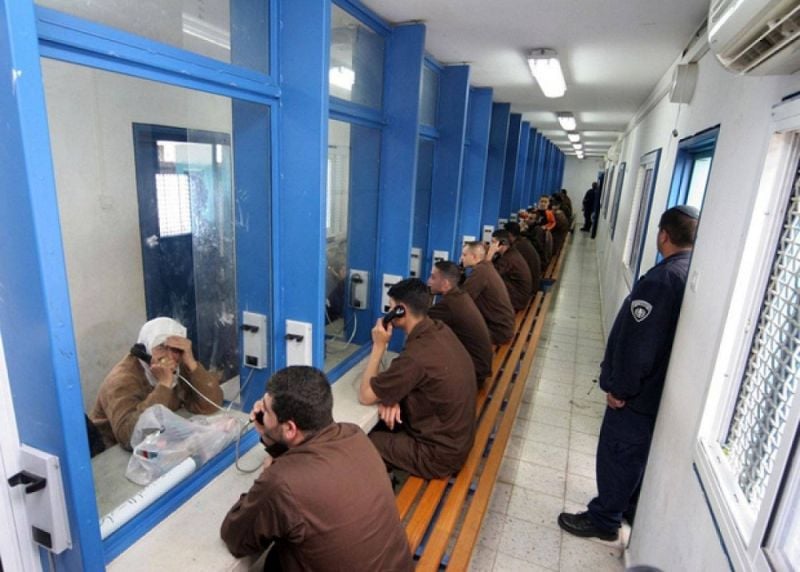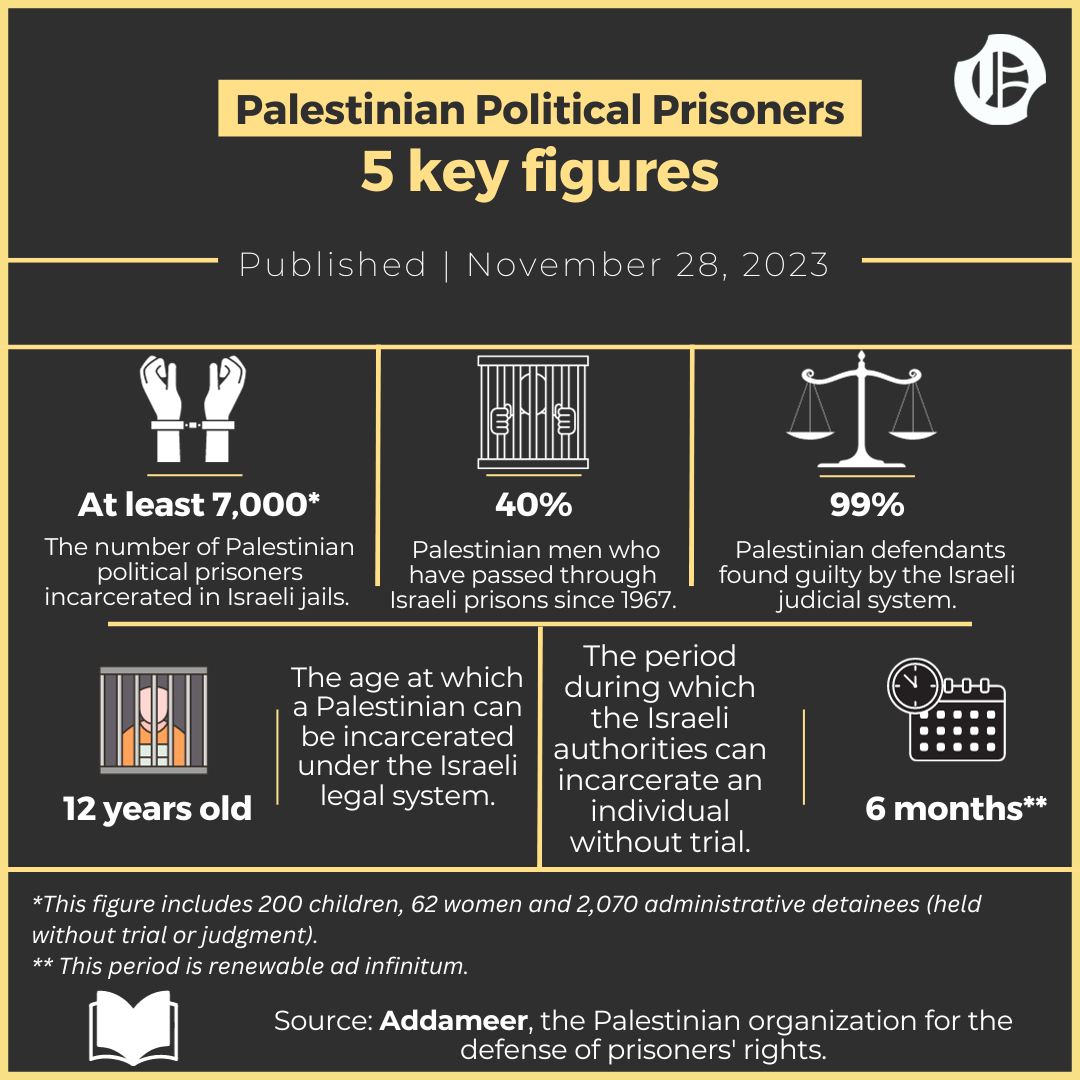
Palestinian prisoners receive visitors in Gilboa prison in northern Israel.AFP archive photos
As the exchanges of hostages in Gaza for Palestinian detainees in Israel is set to continue for another two days, information about the current landscape of Israel's carceral practices towards Palestinians is resurfacing.
Addameer, a Palestinian prisoner rights advocacy organization based in Ramallah, West Bank, tracks several statistics related to the matter, with their latest report published Nov. 6. Over the last week and a half, various sources on the topic have spoken to outlets such as CNN and Reuters about the rate at which Israel has been arresting Palestinians and the dire conditions in which those detained are being held. These tallies of statistics and lived experiences are also reflected in the academic work of Stéphanie Latte Abdallah in her book, "La toile carcérale, une histoire de l’enfermement en Palestine," published in March 2021 by Bayard.
Wave of arrests
On Nov. 8, Amnesty International put out a statement saying that Israel had dramatically increased its arrests of Palestinians in the West Bank since the start of the war. Both CNN and Reuters quote the Palestinian Prisoners Society, which represents prisoners held by Israel, as saying that 2,700 Palestinians were detained in the West Bank and Jerusalem in October alone, 145 of them children and 55 of them women.
According to the Palestinian Authority, as reported by CNN, the total number of Palestinians held by Israel has now risen to more than 8,300 and includes some 350 children and 72 women. This number does not include prisoners from Gaza, which Israel allegedly refuses to disclose. Haaretz reported Friday on the list of prisoners proposed for release by Israel — 123 are minors under the age of 18 and five are 14 years old.
Addameer has counted 7,000 Palestinian political prisoners currently held in Israeli prisons, of which 200 are children. It is unclear whether Addameer considers all detainees to be political prisoners.
 Credit: Elie Wehbe/ L'Orient Today
Credit: Elie Wehbe/ L'Orient Today
No charge, no trial
Amnesty International also points to Israel’s increased use of administrative detention, a form of incarceration without charge or trial. Qadura Fares, head of the Palestinian Authority Commission for Prisoners' Affairs, says more than 3,000 people are currently being held without any knowledge of why and without any ongoing legal processes. Addameer puts this number at 2,070.
Israel has a controversial policy allowing authorities to detain Palestinians indefinitely for six-month periods. This period can be renewed an infinite number of times, without formal charges or trial, based solely on the suspicion of intent. Crucially, evidence supporting such detentions is withheld from the detainee, their family and even their legal counsel.
The Guardian reported on the ongoing hostage-prisoner exchange, commenting that the plight of prisoners is a key issue for Palestinians since at least four of every 10 Palestinian men spend time in Israeli prisons.
For those prisoners who do see a formal trial, the odds appear to be stacked against them, seeing as the conviction rate within the Israeli judicial system shows that 99 percent of Palestinian detainees are found guilty.
Addameer reports that there are currently 559 Palestinians with life sentences and 432 serving more than 20 years.
Dire conditions behind bars
For its part, the Israeli army claims over half of the detainees arrested since Oct. 7 are associated with Hamas. The Israel Prison Service also said that "as part of the war effort" it is imposing tougher imprisonment conditions for Palestinian political prisoners. Fares says at least four Palestinian prisoners have died in Israeli custody since the war began and that their autopsies revealed evidence of torture and medical neglect. Heba Morayef, Amnesty's regional director for the Middle East and North Africa, cited testimony and video evidence she said revealed numerous incidents of torture and mistreatment of Palestinian detainees by Israeli forces. Their experiences include beatings and deliberate humiliation while imprisoned in dire conditions.
A history of exchanges
Israel has a history of agreeing to asymmetrical prisoner-hostage exchanges with Palestinian groups. In 1982, the Popular Front for the Liberation of Palestine (PFLP) took three Israeli soldiers captive. Three years later, a deal was finally reached in which 1,150 Palestinian prisoners were exchanged for the three soldiers. In 2011, another deal — this time for the release of Gilad Shalit, captured by Hamas in 2006 — was reached in which 1,027 Palestinian prisoners were freed in exchange for the one Israeli soldier.
- Israel 'encourages' residents of eastern Rafah to evacuate to 'humanitarian zones' amid looming invasion: Day 213 of the Gaza war
- Hezbollah says fires 'dozens' of rockets at Israeli base
- Four members of the same family, including a 12-year-old child, killed in an Israeli strike in Mais al-Jabal